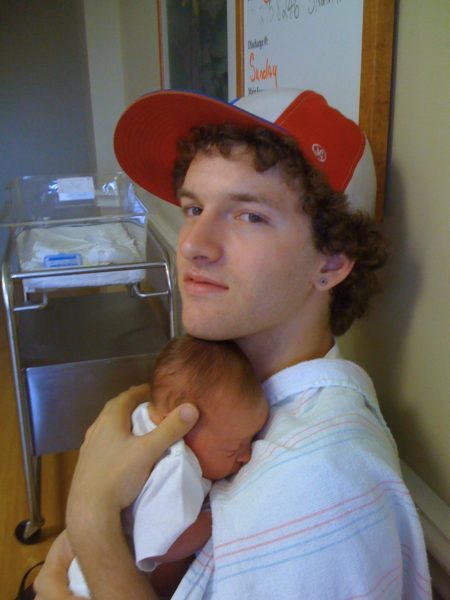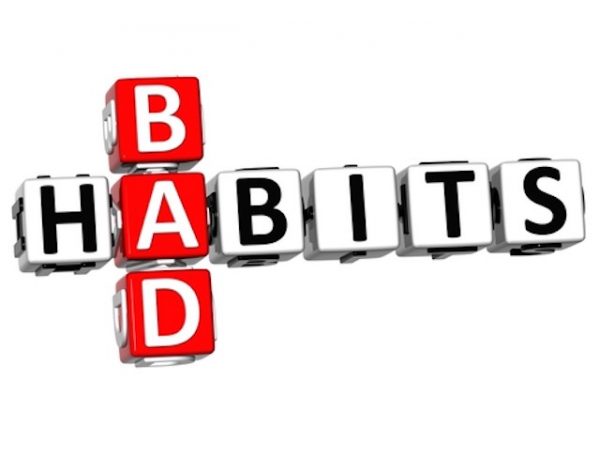Thanks so much, guys, for being patient with me. Things have settled down, but what happened did trigger my PTSD a bit, so it’s probably going to take some time for me to feel whole–not that I every felt completely whole since Erik’s death. But I do feel up to doing the regular posts, so here’s the first:
Me: Hi, Erik. How are you?
Jamie: Erik says hi. It sounds really crazy on my end. Can you hear me?
Me: I hear you great. A little tinny, but… Erik, maybe you need to back away.
Jamie: Oh my god. It sounds great now!
Me: Ah, good. All right. Perfect. Today, we’re going to talk about a number of things, but first I want to talk about addiction. So many people have addictions whether it’s to chocolate, to heroin, shopping, cutting, sex, food. Can you tell us a little bit about that, sweetie?
Jamie: Yeah, he liked how you started off: Chocolate, heroin.
Me: I know!
Jamie: First of all, he loves you, and he says hi.
Me: I love you, too. I always say my hi’s to you before, and you know I love you! I talk to you all the time on my walks.
Erik: It’s like I’m never gone now.
Me: I know. That’s true!
Erik (throwing his hands out): Okay. Let’s talk about addiction.
Jamie giggles at his hand gestures.
Erik: Let’s take away what kind of addiction it is and look just at the need to have repetition and control over that repetition. And let’s just say, whatever the item is—chocolate or heroin or sex or cutting—it’s going to give the person who has the addictive personality some positive feedback. Can we agree to that?
Me: I can agree to anything. You’re running the show here! I’m just here to keep you in line.
Jamie (laughing): Yeah, you need to keep him in line! He just sat down behind the camera and goes, (elbow on knee and fist on face) “Okay, I’m running the show, so…” He’s being funny and hamming it up.
Me: Of course.
Erik: Getting back to the addiction part, though. This is where there’s some part of the person’s character—we could even say personality—that is not complete. It doesn’t feed back in on itself. It just kind of goes out to a dead end.
Me: What do you mean, “feeds back into itself?”
Jamie: The visual he gives me inside my head is every person is a ball of light, and this ball of light has these tentacles coming off of it like an energy exchange. And it would go through another ball of light and then come back to the individual.
Erik: So it would be able to engage with whoever or whatever is in the environment, then come back into itself for learning purposes, for growth, for discovery, whatever the fuck you want to call it.
Me: Ah, I got ya. That makes sense.
Erik: So, now we have this ball of light, this individual, and the tentacle just goes out and goes, “brup.”
Jamie (laughing): He makes a funny sound. “Brup. Dead end.”
Erik: And to fulfill that need, we can have an addiction: something that’s disciplined and self-controlled by one, let’s say the chocolate or heroin or whatever, and we loop it back to ourselves. What we feel is that we’re getting something from our environment that feeds us in a way that we need. That’s what an addiction is. It’s a really—
Jamie (looking puzzled): Say that again. I think that’s another made up cuss word!
Jamie giggles.
Erik: It’s a really fucked up way to try to heal yourself.
Me: Yeah. So why do some people not have that ball of light that feeds back onto them?
Erik: Why do some people have addictions?
Me: Why do some people have it so that something in their environment doesn’t feed back to them? Why do they have addictions, in other words?
Erik: Well, it could be the shape of their character or personality whether they didn’t discover it when they were younger or it was a learned behavior from their parents, an authority figure, a friend they admired, and they end up believing that the addictive substance is a better route than having it through something or someone else.
Me: Okay.
Erik: It could also be from other lifetimes. Our character and personality is created from all of the lifetimes that we live, so if we’re bringing one forward, let’s say—
(Pause)
Jamie: You mean “me” as in you?
Erik: Yes.
Jamie (smiling): Okay. Erik is talking. Erik, in his life in medieval times, loved sex.
Jamie laughs.
Jamie: Can we pick another one just so I won’t laugh at everything?
Me: Well, he didn’t get enough of it when he was here. Poor guy.
Jamie giggles.
Erik: So I would carry that [addiction to sex] through and pull on that lifetime personality more strongly than my other incarnations. I would then have that urge to be addicted to that one thing even though it wasn’t learned from this lifetime.
Me: Will past life regression take care of that type of addiction?
Jamie puts the tip of her index finger to the tip of her nose.
Erik: Bing. On the nose. Yes.
Me: Good. So do you think anyone with an addiction should be past life regressed?
Erik: Dude, that’s the first thing that I would do.
Me: Oh wow.
Erik: Find somebody to look at, “Is it a this lifetime thing, or is it another lifetime thing?” If it’s another lifetime thing, then hypnotherapy, we could say psychotherapy in a way because it’s more heady and we can analyze it and put it to where it’s in the appropriate lifetime—that’s a great way to handle it. If it’s from this lifetime, then we can look at life coaching and therapies where we’re looking at ourselves. Why aren’t we honoring ourselves? Why aren’t we giving ourselves love, compassion, worth, etc. so we can heal how that tether or string that goes out to a dead end can connect to a greater source or another situation and have it feed back on ourselves.
Me: Ah, okay. Now, are there any natural remedies that would help addictions? A special type of mushroom or an herb?
Jamie (smiling): He immediately went to hallucinogens.
Me: Really? That sounds—
Jamie: You said mushrooms!
Me: I know. My fault, but I want to talk about a particular mushroom later. So hallucinogens?
Erik (shaking his head): No. Well, hallucinogens can give you an experience to help you understand your personality and your character better so you can make choices and change it so you can change your addictive behavior.
Me: Oh, okay.
Erik: But that’s not the answer for everybody. It’s more for shedding light on, “Is it a this lifetime thing or another lifetime thing?” And you can take it from there—stay in your comfort zone but challenge it to find out more who you are. That’s what fixes it.
Me: What if it’s this lifetime, and it’s learned, and it is a physiologic—most addictions have a physical component. So is there anything you can ingest to make it better along with the life coach and the this and the that?
Erik: I get you. I get you. If you’re addicted to sugar, that might not be due to a personality trait. It could be a candida thing. It could be—
Jamie looks totally puzzled.
Jamie: Oh, I’ll say it, but I don’t know if it makes sense.
Erik: It could be the cat poop that you scooped and got bacteria into your body.
Me: Oh, toxoplasmosis? That can cause addictions?
Erik: It changes the way you behave so yes, that can create addictions.
Me: Addiction to cat poop. Oh no! (Pointing to myself) That’s never going to happen here. Never. Never. So no natural substances will help?
Erik: If we’re looking at the behavior coming from a physical thing and it’s from this lifetime, then, yes, we can change the body’s make up and change what it needs.
Me: Okay. With?
Erik: With the example of the candida, it can be a change in the diet. There are some drugs that can help shift and change—
Me: Pharmaceuticals? Prescription drugs?
Erik: No. More holistic and natural. Mom wants to talk about mushrooms.
Me: Yeah, I read this thing about Chaga mushrooms. They’re mushrooms that grow in the circumpolar regions of the world like Siberia and Northern China on the bark of birch trees. It’s supposed to be the most powerful antioxidant known the mankind. I think that’s why those Siberians and Northern Chinese live to be 180. No, just kidding, but they live to be really old and stay spry. Can you tell me about, well, first of all, will that help addictions?
Erik: It’ll boost your health, but it won’t really help an addiction. Mom, even if it’s a physical addiction, you have to address the mental addiction. If it’s a physical thing and your body craves it, craves it, and you train your mind to go get it, go get it, if you heal the body, the mind is still going, go get it, go get it. You have to help that side of it, too.
Me: Well, I’ve been having a cup of the Chaga tea every day, and my sense of well-being has improved. Is it good stuff?
Erik: Mom, you should put the link down below on the page so everyone can go get a cup of tea.
Me: Okay, I will. God, I hope I can remember. So will it help? I mean, is it helpful?
Here’s the LINK. See I didn’t forget!
Erik: It is helpful. It’s helpful, yeah, because a strong healthy body—do we need to talk about this more?
Me: Oh yeah. The immune system, plus it has good anti-tumor properties so they use it for melanoma and other cancers. Sloan Kettinger Memorial even has its own webpage on Chaga mushrooms. Are there any other substances that are better than that that I should do instead?
(Pause)
Me: Your mama’s doing schrooms! Oh no!
Jamie laughs.
Me: They’re not hallucinogenic. I promise, guys.
Erik: Yes, but they haven’t been found yet.
Me: Oh, okay. I’ll just wait.
*********************
A review for My Life After Death: A Memoir from Heaven:
A must read for anyone regardless of current belief systems, religions, etc. An amazing book that explores the infinite possibilities within and beyond this human existence. This book is amazing and different in the sense that it does not try to push any belief onto anyone. It recognizes that we are all individuals and it simply presents us with the perspective of being open and deciding for ourselves what is best for us. It challenges us all to ask ourselves what is true for us. It starts conversations and opens hearts and doors that may not have been visible or accessible to us before. Truly a great read and a great gift.
–Angela
Order your copy HERE.




